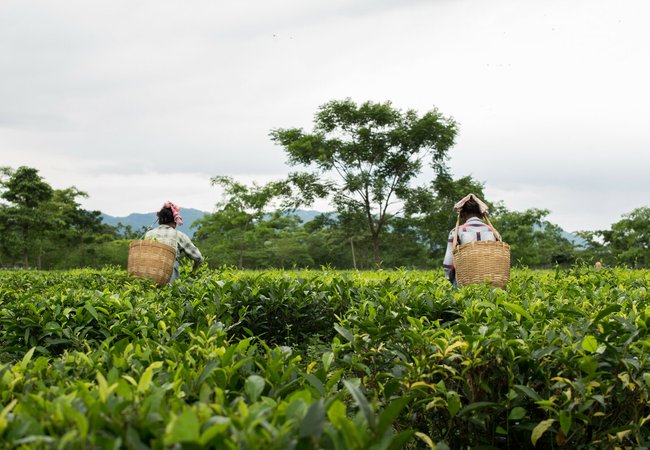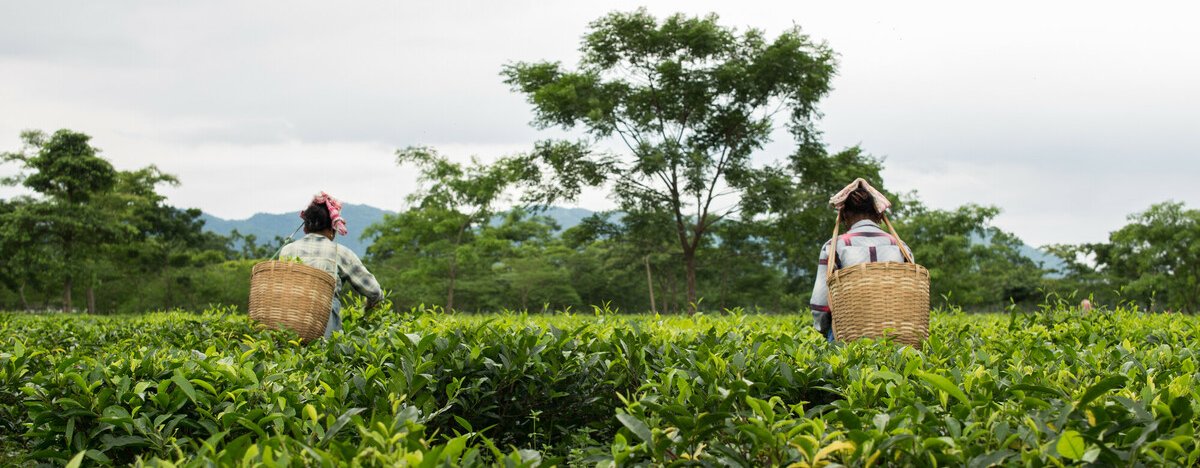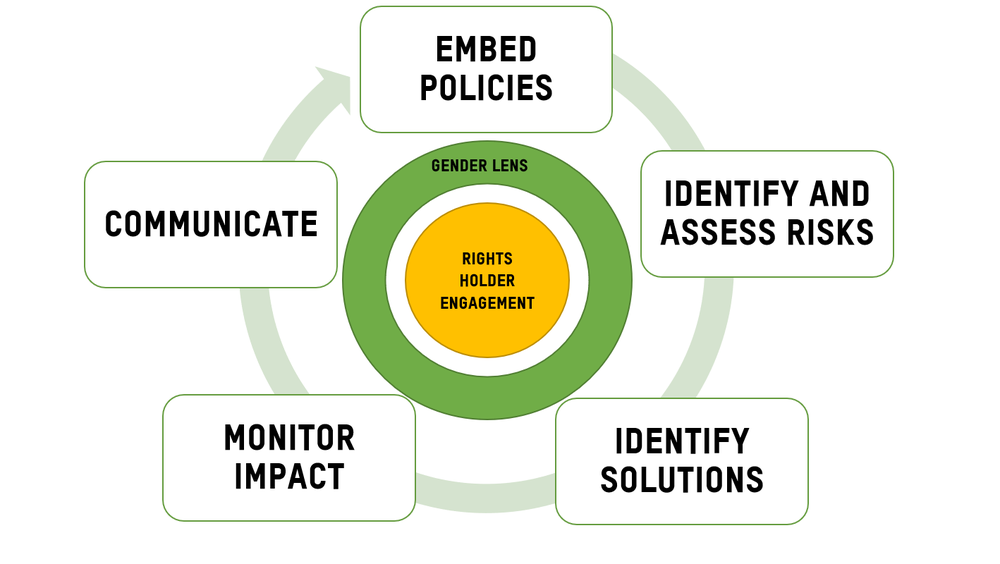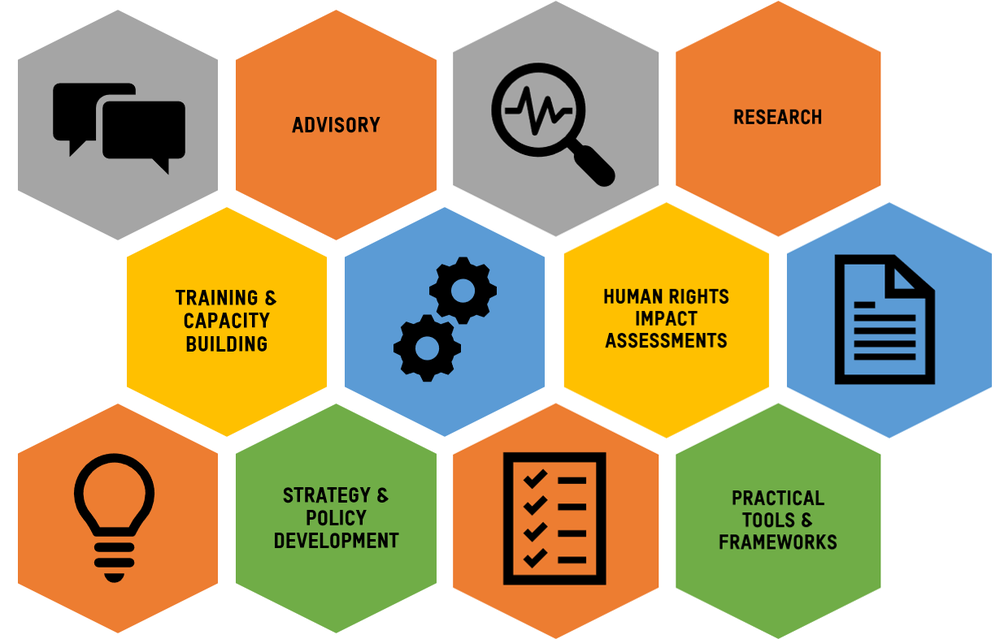- About us
- Contact us
- What we do
- Our clients
- Resources
Women picking tea. Photo: Roanna Rahman/ Oxfam India


What we do
Oxfam Business Advisory Service brings all of Oxfam’s private sector expertise and experience to companies through tailored advice, guidance and support with implementation, helping businesses to lead as global citizens and build more resilient and sustainable supply chains.
Our approach
We support our clients to lead on the issues that matter to workers, customers, employees and investors – working together to fight the global inequalities that push people into poverty.
We take the recommendations from decades of Oxfam’s research and advocacy, and put them into practice, working constructively to build trust with clients and tackle challenges together in a pragmatic way.
Recognising the importance of diverse perspectives and lived experiences in understanding impact and improving conditions, our approach is:
- worker centric
- participatory
- gender responsive
Key issues we can help with
As companies are grappling with human rights issues in their supply chains, from grievance mechanisms and barriers to gender equality, to living income and rightsholder engagement, Oxfam has experience and can help.
We provide expertise across all elements of business and human rights and can help your business across the human rights due diligence cycle and beyond.

Embed policies
We advise on companies’ human rights strategy and policy, acting as a ‘critical friend’ including identifying any gaps and stretching ambition in line with Oxfam’s recommendations for business.
Identify and assess risks
We help companies build a better picture of the potential and actual human rights impacts throughout their operations and supply chains, ensuring that this focuses on the people most likely to be impacted by a company.
Grievance mechanisms
Establishing effective grievance mechanisms is a critical way for businesses to understand issues and concerns, and when working well can enable companies to understand and address problems before they develop into more serious or intractable issues. We recently developed a grievance mechanism toolkit which you can read more about here.
Human rights impact assessments
Human rights impact assessments (HRIAs) can be a good way for a company to do a ‘deep dive’ into a particular value chain to get a fuller picture of the risks and impacts for different groups, especially those that may be marginalised, vulnerable or disproportionately impacted by harmful business practices. We focus on hearing from producers and workers on what the biggest issues they face are, and conduct root cause analysis to show how companies’ practices can impact these – and together build an action plan to help our clients address these impacts.
Identify solutions
Solutions to human rights risks can include both removing negative impacts (through direct remedy, prevention and mitigation) and creating positive social impact. This can include reviewing and improving the impact of a company’s activities (such as looking at the social impact of circular packaging programmes), improving purchasing practices, and ensuring a fairer distribution of value across supply chains.
Living wage and income
Ensuring workers and producers earn enough to afford a decent quality of life for themselves and their families is one of the best ways to tackle poverty.
With many companies making commitments to ensure workers in their supply chains earn at least a living wage and farmers growing raw materials receive a living income through their produce, we help companies take the concrete steps to turn these ambitions into a reality.
Monitor impact
We help companies better track and evaluate the impact of their efforts to improve their human rights work, drawing on Oxfam’s decades of expertise in monitoring, evaluation and learning across our development work with communities.
Gender data collection and analysis
In order to identify and address the root causes of gender inequality across supply chains, it is vital for companies to collect and analyse gender data. We can provide advice and practical guidance to help companies to strengthen their gender data collection, and offer support to develop possible solutions that respond to highlighted issues, contributing to positive change across supply chains.
Communicate
With stronger actions and impacts captured throughout the cycle, we help businesses have robust due diligence that they can communicate to stakeholders, helping them demonstrate how they are meeting their responsibilities and even leading their sector.
We also provide advice and feedback on companies’ communications such as sustainability or human rights reports.
Cross-cutting themes
Gender
Applying a gender lens to all our work, we ensure the advice and support we provide companies takes into account the range of experiences and challenges women and non-binary people face. We help businesses better understand the root causes of gender inequality in their supply chains, including the barriers and opportunities for women’s empowerment.
We help companies to improve the way they capture gender disaggregated data, enabling them to identify where gender inequalities are happening and then plan and implement the practical steps they can take to address these.
Rights holder engagement
Through our worker-centric approach, we involve workers, producers, their representatives (including trade unions), and communities in the solutions we build with companies.
We specialise in providing support for companies to increase worker voice in their supply chains and engage more meaningfully and effectively with stakeholders, with a particular focus on those whose human rights might be impacted by the company (known as “rights holders”).
Our services
We offer practical, pragmatic solutions across the human rights due diligence cycle that get to the heart of our client’s challenges and meet their needs and ambitions. Our range of services includes:
Services include: Advisory, Training & capacity building, Strategy & policy development, Research, Human Rights Impact Assessment (HRIA), Creating practical tools & frameworks

